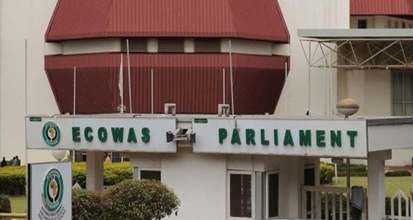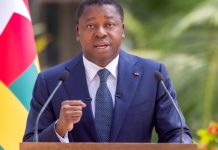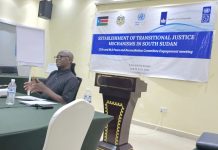By Kebba AF Touray
The ECOWAS Parliament has adopted a key recommendation urging the regional bloc to revise its Protocol on Democracy and Good Governance to explicitly prohibit presidential third terms—an issue widely seen as a trigger for political instability in West Africa.
The resolution was passed Thursday during the regional legislature’s ongoing First Ordinary Session, following a delocalized meeting held in Banjul from April 28 to May 2. The meeting focused on the regional implications of the recent withdrawals of Mali, Burkina Faso, and Niger from ECOWAS, and produced a series of recommendations through a joint committee comprising members from the Political Affairs, Peace and Security committees.
Among the most significant of the adopted resolutions is a call to revise ECOWAS protocols to prohibit third-term presidential bids and reinforce measures against unconstitutional changes of government—factors that have contributed to democratic backsliding and coup d’états in several member states.
“The ECOWAS Commission should revise the protocol on democracy and good governance to explicitly prohibit third term presidential terms,” the committee stated in its report, read by Co-Rapporteur Awaji-Inombek Dagomie Abiente.
The joint committee’s report covered a broad range of issues, including governance, electoral transparency, security cooperation, and regional integration. On governance, the committee called for stronger electoral monitoring and early warning mechanisms, alongside a more robust sanctions regime for violations of democratic norms.
On security, the lawmakers urged the activation of the ECOWAS Standby Force, with a mandate to assist member states—particularly coastal ones—in counter-terrorism operations, intelligence sharing, and capacity building.
The report also called for enhanced communication strategies, recommending a multilingual outreach campaign to better inform citizens on the benefits of ECOWAS membership and combat misinformation. The recommendation highlighted the need for partnerships with local media and community-based organizations.
Acknowledging the geopolitical shifts following the exit of Mali, Burkina Faso, and Niger, the parliament called on member states to pursue bilateral and technical dialogue with the three countries. It proposed using sub-regional frameworks such as the Organisation pour la Mise en Valeur du fleuve Sénégal (OMVS) to maintain cooperation in key areas like water management, humanitarian relief, and free movement.
Further, it recommended that the ECOWAS Commission develop clear visa and residency frameworks for citizens of the withdrawing states and explore options for maintaining essential regional ties despite political rifts.
The committee also proposed a series of institutional reforms aimed at restoring trust in ECOWAS institutions and preventing further disengagement by member states. These included establishing a regional humanitarian emergency fund, financed through an automatic levy, to respond to refugee crises and conflict-related displacements; creating an inter-parliamentary dialogue platform to ensure continued engagement with suspended or withdrawing member states; and advocating for reforms that restore confidence in the ECOWAS integration agenda.
The push for a third-term ban comes amid rising concern over constitutional manipulation in West Africa. In recent years, attempts by sitting presidents in Guinea and Côte d’Ivoire to extend their terms were followed by unrest and, in Guinea’s case, a military coup.
The regional body’s legitimacy has come under pressure as coups and democratic reversals undermine its founding principles. With the withdrawal of three Sahelian nations and growing public skepticism, ECOWAS is facing a critical test of its relevance and cohesion.
The Parliament’s recommendations now move to the ECOWAS Commission for consideration and possible integration into the regional policy framework.



















